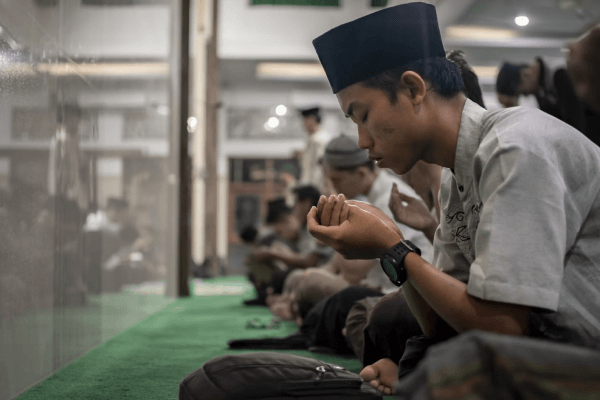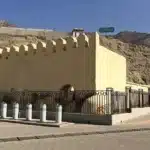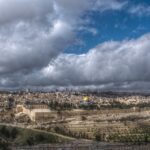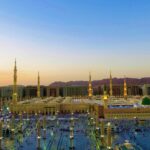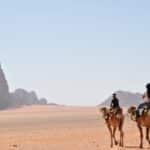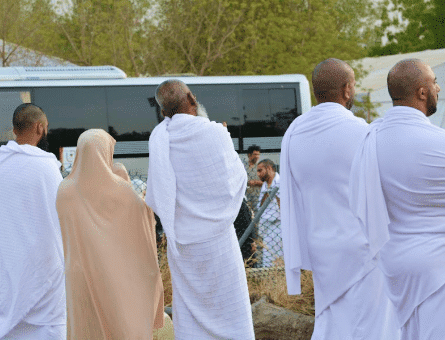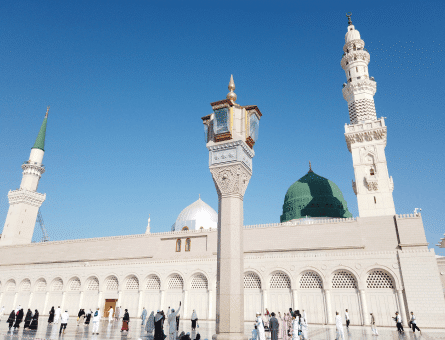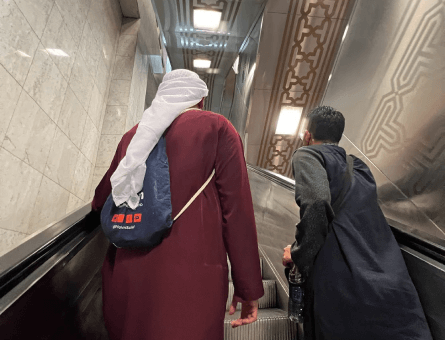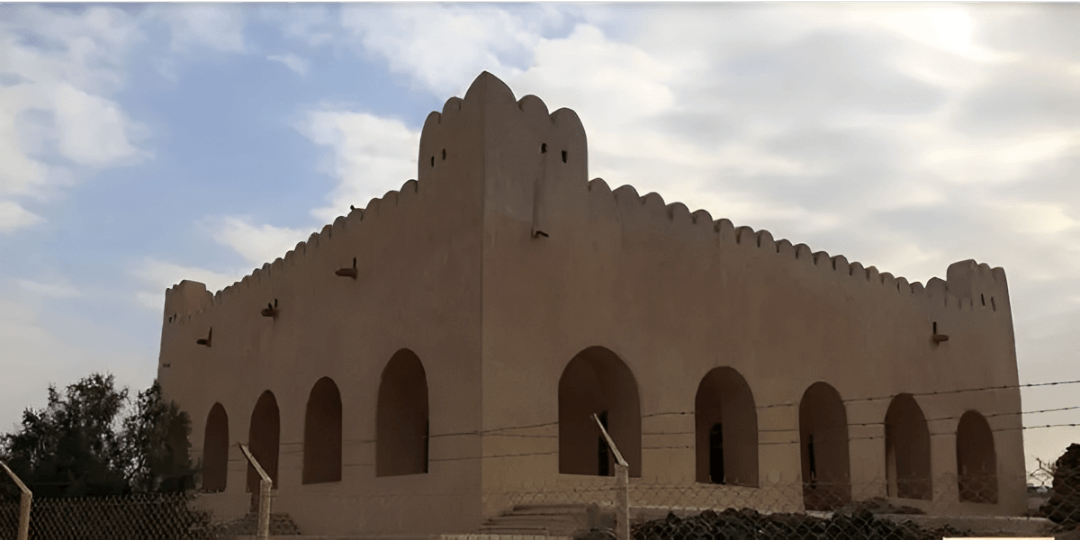Castle of Urwah Ibn Al-Zubair (RA) – Everything you need to know
The castle of Urwah Ibn Al-Zubair is located three kilometres west of Masjid an-Nabawi in the Al Aqeeq Valley on the outskirts of Madinah, Saudi Arabia. According to tradition, Urwah bin Zubair (RA) constructed a large fortress, a farm, and a well on a portion of land he bought from Khawwat bin Jubair.
However, soon after this death, the castle was overtaken by leaders of the Ottoman Empire.
The historical fortress of Urwah bin Zubair (RA) was discovered and excavated in 2013. Since then, situated in the sacred valley, the palace of Urwah bin Zubair (RA) has been visited by hundreds of Muslims every year.
Here is everything you need to know about the castle of Urwah Ibn Al-Zubair.
What Is the Significance of the Castle of Urwah Ibn Al-Zubair?
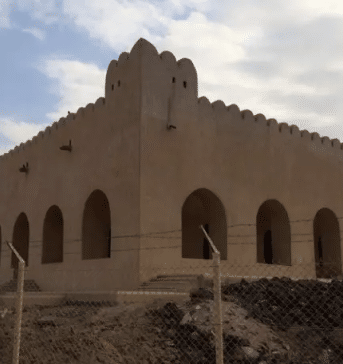 Constructed on top of a mountain, the castle of Urwah Ibn Al-Zubair overlooks the sacred valley of Al Aqeeq. The walls and foundation of the fortress of Urwah (RA) are built using stone cuts from nearby mountains.
Constructed on top of a mountain, the castle of Urwah Ibn Al-Zubair overlooks the sacred valley of Al Aqeeq. The walls and foundation of the fortress of Urwah (RA) are built using stone cuts from nearby mountains.
However, the gate of the castle is installed on the southern side and covers a land of approximately three courtyards.
Upon its excavation in 2013, historians discovered many archeological treasures of the Ottoman Empire, including steatite utensils, tools made of stone, glass, and pottery.
Who Was Tabi’i Urwah bin Zubair (RA)?
Urwah bin Zubair (RA) was one of the seven jurists (fuqaha) who formulated the fiqh of Madinah at the time of the Tabi’in. Urwah bin Zubair (RA) was the son of Asma’ bint Abu Bakr (RA) and Zubair ibn al-Awwam (RA) and the brother of Abd Allah ibn al–Zubair (RA).
He was also the nephew of Aisha bint Abu Bakr (RA), one of the Mothers of the Believers.
Urwah bin Zubair (RA) used to carefully observe Prophet Muhammad (PBUH) and applied his (PBUH) Sunnah to his actions. According to tradition, Urwah bin Zubair (RA) even fasted on the most humid and hot days and would spend his nights worshiping Allah SWT, asking for His mercy, blessings, and forgiveness.
Urwah bin Zubair (RA) had a habit of reciting a fourth of the Holy Quran and repeating it by heart during the night. Throughout his life, Urwah bin Zubair (RA) missed this only once.
Urwah bin Zubair (RA) was once invited by al-Walid bin Abdul-Malik, the Khalifa of Damascus. Accepting the invitation, he along with his eldest son Muhammad, went on a journey to Damascus. Muhammad was known as the most handsome man in Madinah.
On arriving at the castle, the Khalifa invited Urwah bin Zubair (RA) and Muhammad them with open arms and honour. While looking at Muhammad, Al-Walid said, “This is how the young people of Quraysh should look!”
Little did Urwah bin Zubair (RA) know that the Khalifa had put nazar (an evil eye on him) by saying so. Because of this, Urwah bin Zubair (RA) suddenly fell ill. While Muhammad was preparing for their return, one of the Khalifa’s horses lost control and trampled the young man to death.
Soon after burying his son, the grief-stricken father was told that gangrene had infected his foot and the only medical cure was to amputate the leg. Urwah bin Zubair (RA) was suggested by the hakim (doctor) to take an intoxicant in order to numb the pain. However, he replied, “No, I will not do that. I will not seek help in haram on what I hope from for forgiveness.”
The doctor then offered to give him a tranquilizer, to which the steadfast Urwah (RA) replied: “I do not wish to be deprived of one of my limbs without me feeling its pain, and therefore be deprived of the reward. I aspire for it from Allah SWT.”
Right before the doctor was ready to amputate his leg, a group of people came to them. Seeing them, Urwah (RA) inquired: “Who are these people?” The doctor said, “They have been sent so that they can hold you, since perhaps when the pain becomes severe, it might cause you to pull back your leg, causing you harm.” To this, Urwah (RA) replied, “Send them back! I have no need of them, I hope that dhikr and tasbih will suffice me.”
Urwah (RA) kept reciting Allah SWT’s name until his entire leg was cut off. It was the point when boiling oil was poured over his leg to stop the bleeding that Urwah (RA) became unconscious and fell into a deep sleep. Therefore, he wasn’t able to recite the Holy Quran that day.
Later, Urwah (RA) was taken to his hometown to Madinah, where he said to all the people who came to console him that, “Do not be frightened with what you see.
Allah SWT has bestowed upon me four sons, and He has taken back one and allowed me to remain with three, so for Him is the Praise. Allah SWT has given me four limbs and has taken one and allowed me to remain with three, so for Him is the praise. I swear to you by Allah SWT that if he has taken from me a little, then he has caused to remain with me much, and if he has tried me once then, he has forgiven me many times.” After the incident, Urwah (RA) retired and resided with his family in a residential complex that he constructed on the outskirts of Madinah.
Tabi’i Urwah bin Zubair (RA) was also a renowned Hadith Scholar. He narrated approximately 1739 hadiths. It is reported that Urwah bin Zubair (RA) said, “Before Aishah (RA) died, I saw that I had become one of four authorities. I said, ‘If she dies, there will be no hadith which will be lost from those she knows. I have memorised all of them.'”
Urwah bin Zubair (RA) tragically passed away at the age of 71 in the year 93. May Allah SWT bless his soul.
Where Is the Castle of Urwah Ibn Al-Zubair Located?
According to Islamic history, Urwah Ibn Al-Zubair purchased a portion of land from Khawwat bin Jubair, located three kilometres west of Masjid an-Nabawi.
He later converted it into a farm and constructed a large fortress and a water-filled well near it. The historical castle of Urwah Ibn Al-Zubair is situated in Al Aqeeq Valley (Wadi Al Aqeeq), along the western boundary of Madinah, Saudi Arabia
What Does “Urwah” Mean?
“Urwah” is an Arabic name that means “strong support,” “evergreen tree,” “lion,” and “handhold.” Mentioned in the Holy Quran twice, Allah SWT says, “There shall be no compulsion in religion: true guidance has become distinct from error. But whoever refuses to be led by Satan and believes in God has grasped the strong handhold that will never break. God is All-Hearing and All-Knowing.” [Holy Quran 2:256]
And whoever submits his face to Allah while he is a doer of good – then he has grasped the most trustworthy handhold. And to Allah will be the outcome of [all] matters.” [Holy Quran 31:22]
Other Islamic Landmarks
Looking for more historical places to visit? Listed below are Islamic landmarks you can find near the castle of Urwah bin Zubair (RA).
Quba Castle
Located on a hill in the Al-Dawima neighbourhood, 1500 metres from Quba Mosque, Quba Castle was built by Fakhri Pasha to protect the Ottoman Empire from the invasion of the Hashemite army.
This historical castle played a critical role in ending Turkish rule and giving the power back to the Arabs in the Arabian Peninsula.
Wadi Al Aqeeq
Otherwise known as the “Valley of Al Aqeeq,” Wadi Aqeeq is situated alongside the western boundaries of Madinah, Saudi Arabia. It is where many of the companions lived after the death of Prophet Muhammad (PBUH) and where the castle of Urwah Ibn Al-Zubair (RA) is located.
Saad bin Abi-Waqqas (RA) said, “We were with the Prophet Muhammad (PBUH) at the Mu’arras, and he said, ‘Someone came to me saying, ‘You are in the Blessed Valley!”” (Al-Bukhari)
Jabal Ayr
Jabal Ayr is located on the southern boundary of Madinah, Saudi Arabia. It is the second largest mountain after Mount Uhud. The Messenger (PBUH) of Allah SWT said, “Uhud is a mountain which loves us and which we love, it is upon the Gate of Heaven,” adding, “And Ayr is a place which hates us and which we hate, it is upon the Gate of Hell.”
Summary – Castle of Urwah Ibn Al-Zubair (RA)
Located in Wadi Al Aqeeq, the castle of Urwah Ibn AI-Zubair (RA) is one of the most significant monuments in Islam. It was where Urwah Ibn AI-Zubair (RA) lived for most of his life and where he passed away.
He also constructed a well near the castle to provide water for cultivation. The fortress still stands today and is open to tourists.
Through His Names
New course with
Ustadh Shabbir Hassan




